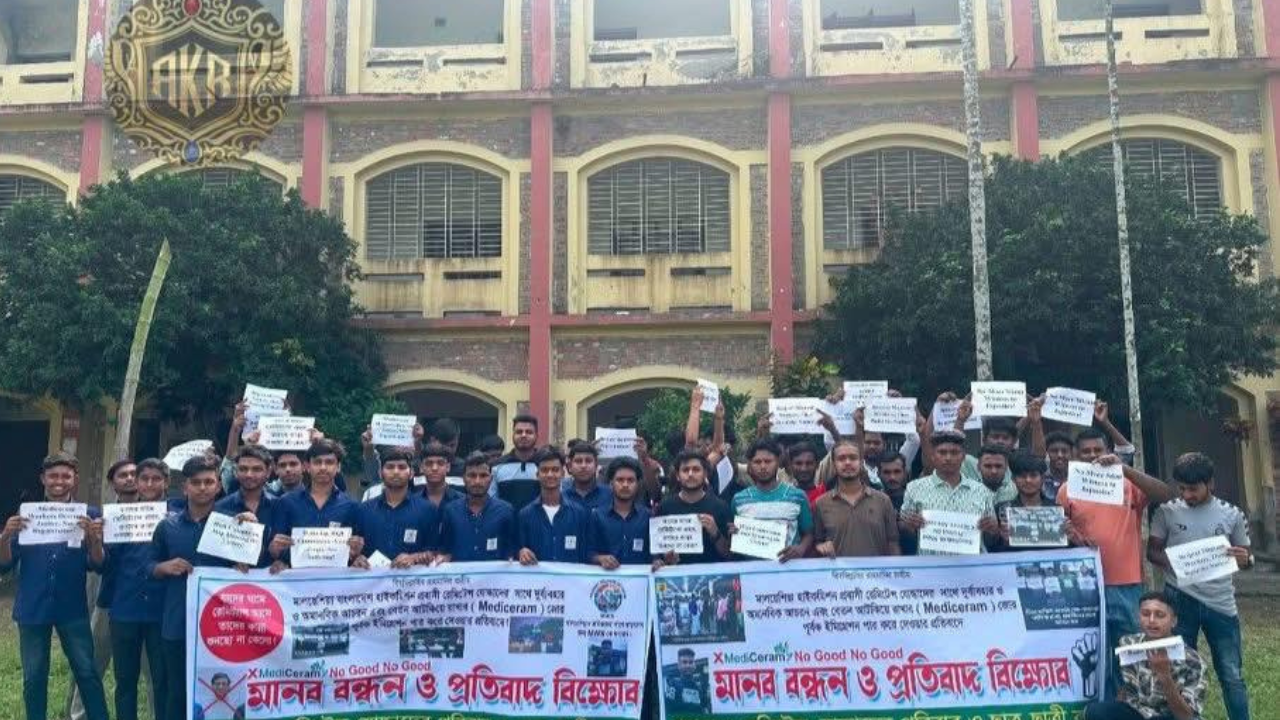Crisis in Kuala Lumpur: MediCeram Fires 180 Bangladeshi Migrants Amid Allegations of Visa Neglect and Institutional Failure

Kuala Lumpur, November 18, 2025: A massive employment crisis has erupted in Malaysia as MediCeram Sdn Bhd, a manufacturing company, abruptly terminated and repatriated 180 Bangladeshi migrant workers. This incident has sparked intense anger and disappointment among the expatriate community, who allege they were summarily dismissed after their pleas for visa renewal, salary payments, and job security were repeatedly ignored. The workers claim they were unjustly pressured by withholding work and mass termination, calling the action a clear violation of labor laws. & Related Article also read The Embassy of India, Riyadh, has launched the Global Passport Seva Programme 2.0
Crisis of the 180 Workers and the ‘Betrayal’ by Asif Nazrul
The dreams of a better life in Malaysia have turned into a harsh reality of suffering for these expatriate workers. While their collective labor contributes significantly to Malaysia’s prosperity, their own lives remain neglected and uncertain.
The major focus of the workers’ outrage is directed at Asif Nazrul, an advisor to the Ministry of Expatriates’ Welfare and Overseas Employment. They vehemently claim that his repeated assurances of visa assistance, problem resolution, and investigation into irregularities were nothing short of deception and a betrayal of the Bangladeshi community in Malaysia.
“We hoped that as a representative of the Bangladesh Government, he would stand by us, but in reality, no solution was found. Asif Nazrul’s ‘assurance’ was merely a pretense,” stated one affected worker. The failure to secure assistance from a key government official has amplified the feeling of being abandoned.
Furthermore, the workers have expressed deep dissatisfaction with the negligence and inaction of certain officials at the Bangladesh High Commission. They allege that the High Commission failed to give due importance to their concerns and, instead of providing effective support, seemed to align with the company’s position. This collective failure—the company’s illegal decision, the lack of governmental support, and the High Commission’s silence—is being viewed as a systemic neglect of workers’ rights.
The 180 affected workers are demanding: a transparent investigation into MediCeram’s conduct, immediate legal redress for the wrongful termination, an explanation for the failures of the Ministry and the High Commission, and urgent measures for financial compensation, resolution of visa issues, and rehabilitation. They are currently seeking justice against the oppression and waiting for accountability from the state
Malaysia’s Overcrowded Prisons: A National Concern
Adding to the complexities of the legal and social environment, Deputy Home Minister Datuk Seri Dr. Shamsul Anwar Nasarah announced a critical overcrowding issue in Malaysian prisons.
Capacity Exceeded: The country’s prisons currently house 84,143 prisoners against an official capacity of 76,311.
Surplus Inmates: This means there are approximately 7,872 extra prisoners in the custodial facilities.
Rehabilitation Programs: An additional 6,640 individuals are currently participating in community-based rehabilitation programs.
Responding to a question regarding the possibility of reviewing policies for drug-related cases and transferring minor crime offenders to community rehabilitation to ease overcrowding, the Deputy Minister assured that coordinated steps are being taken in both law enforcement and rehabilitation strategies. This severe prison overcrowding underlines the risk of detention and the demanding legal climate for all expatriates in the country.
The Role and Inaction of the Bangladesh Government
Based on the workers’ direct testimonies, the involvement of the Bangladesh government and its representatives in this crisis has been largely marked by failure and passivity:
Failure of Asif Nazrul: The core accusation is that despite being repeatedly informed of the crisis, Advisor Asif Nazrul offered only false assurances and took no concrete action to resolve the visa and termination issues. This is being interpreted by the workers as a direct betrayal of their trust.
High Commission’s Silence: The Bangladesh High Commission is accused of lacking proper engagement and failing to prioritize the workers’ distress. Their perceived support for the company over the workers is a major source of their anger.
Consequence: The combined inaction from the government advisor and the diplomatic mission has led to a feeling that the workers were left to fend for themselves. This entire episode highlights a collective institutional failure to protect the rights and well-being of Bangladeshi migrant workers in Malaysia.
The workers’ key demand is for the Bangladeshi authorities to stop their silence, provide an explanation for their past failures, and immediately establish urgent measures to address the financial and legal turmoil faced by the 180 families



